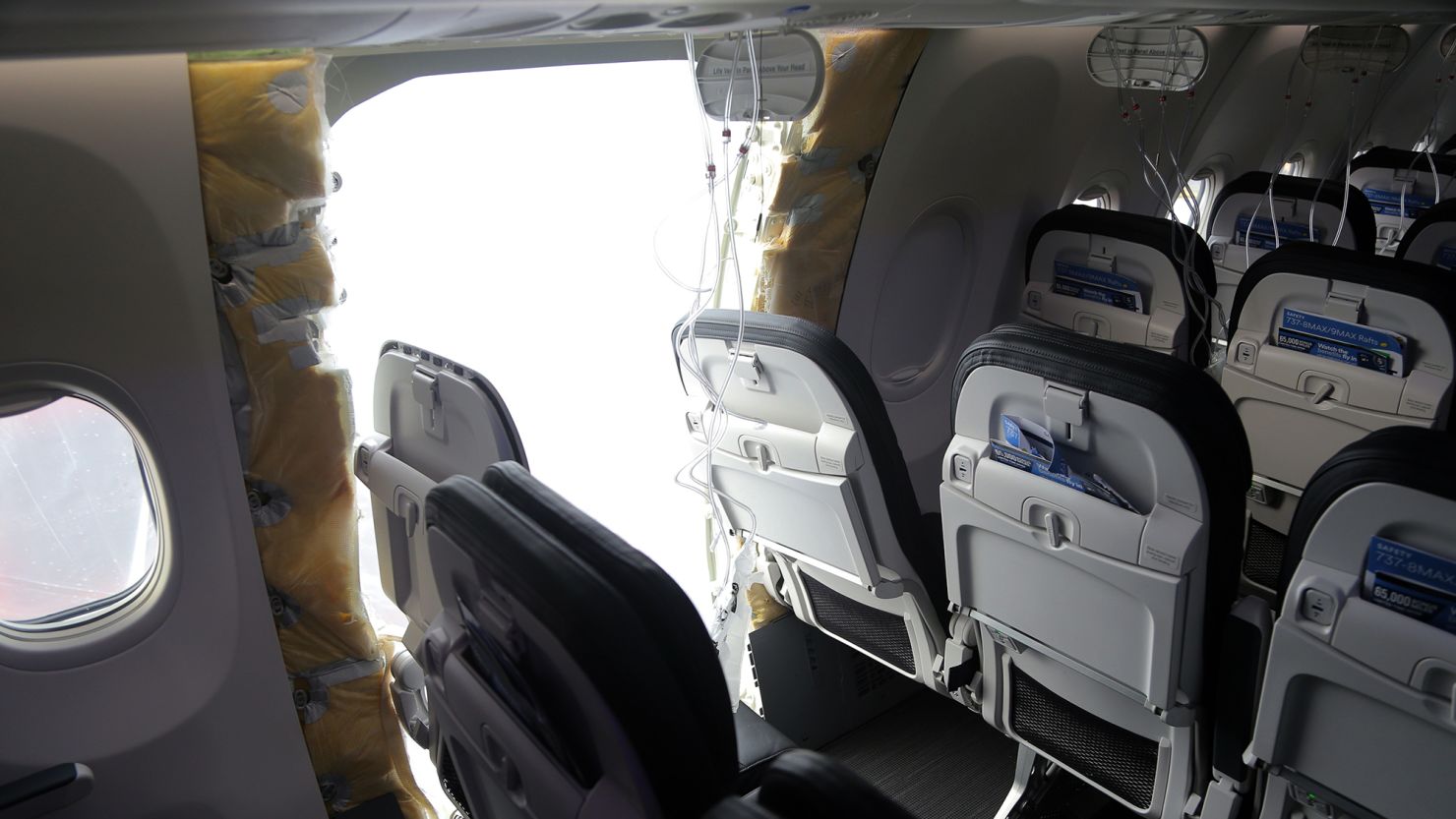Boeing faces yet another federal probe over its 737 Max door plug blowout, this one by the Justice Department, an investigation that could expose it to criminal liability.
Justice is reviewing whether deficiencies found in the wake the door plug blowout on a 737 Max flight last month violate a deferred prosecution agreement that Boeing signed with the government three years ago following two Max fatal crashes, according to a person familiar with the investigation.
Prosecutors are looking at whether the latest troubles at Boeing are covered under the previous deal under which Boeing paid $2.5 billion to settle allegations that Boeing defrauded the Federal Aviation Administration during the initial certification process for the 737 Max. The investigation was first reported by The New York Times and Bloomberg.
The reported probe adds to a lengthy list of investigations into Boeing’s actions after part of an Alaska Airlines flight blew off the side of the plane on January 5. No one was seriously injured.
The Justice review could expose Boeing to broader criminal liability if officials decide Boeing may have violated a controversial legal agreement that was due to expire on January 7, two days after the door plug incident. It was not immediately clear what part of the agreement Boeing may have violated.
Boeing said it had no comment on the reports of the Justice investigation.
Families of passengers who died in the 2018 and 2019 crashes of 737 Maxes – the crashes that led to the deferred prosecution agreement – tried to overturn the agreement, saying a federal victims law should have given them a say. In the days after the door plug incident on Alaska Airlines flight 1282, an attorney for the families asked the Justice Department to review whether Boeing violated the agreement.
The agreement cost Boeing $2.5 billion in 2021, but most of that money – $1.77 billion – went to compensate the company’s airline customers, money it had already agreed to pay for the 20-month grounding of the jets following the crashes. It also included a $243.6 million criminal fine and a $500 million to fund a compensation for family members of the crash victims.
Boeing is subject to several other investigations stemming from the door plug incident.
The FAA last month informed Boeing it is probing whether the company failed to ensure its planes “conformed to its approved design” and that they were in compliance with FAA safety regulations. The FAA is also completing an audit of Boeing’s manufacturing processes and a survey of Boeing’s employees.
Wednesday the agency gave Boeing 90 days to produce a plan to fix serious quality and safety issues.
The National Transportation Safety Board continues to investigate the door plug incident and recently reported that critical bolts that hold the door plug in place were not installed in Boeing’s factory.
The NTSB has yet to determine blame or fault for the door plug incident on the Alaska Air flight. That will come later in its investigation, perhaps a year or more from now. But Boeing CEO Dave Calhoun told investors in January, “We caused the problem, and we understand that. Whatever conclusions are reached, Boeing is accountable for what happened.”
A year-long FAA-commissioned panel review this week was sharply critical of the safety culture at Boeing, finding executives and employees are not on the same page about safety, and that employees fear retaliation for speaking up.
This story has been updated with additional reporting and context.







